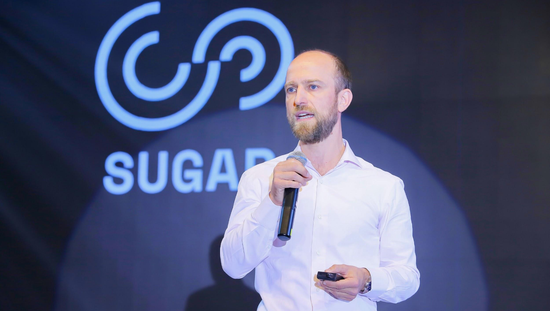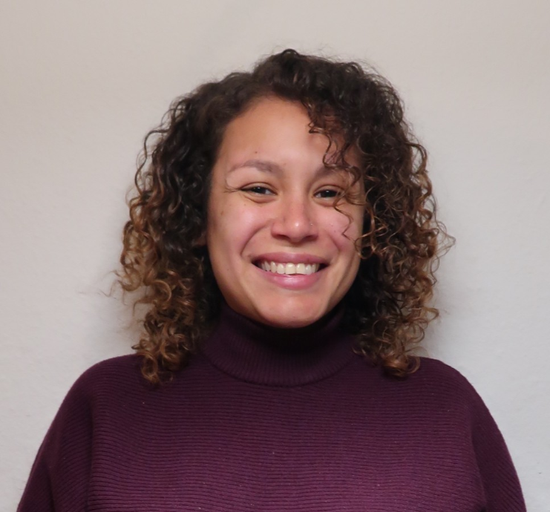An error occurred while loading the video player, or it takes a long time to initialize. You can try clearing your browser cache. Please try again later and contact the helpdesk if the problem persists.
Design thinking (DT) is a valuable approach for enabling effective innovation in organizations (Kolko 2015). Just as a company’s, objectives for DT are diverse, so is the diversity of how and why organizations implement and succeed DT. While some companies start small in one department, others make DT part of their strategy and implement DT globally throughout the whole organization and embed it into their corporate DNA.
Language: English
English
Advanced, Professional Skills
Course information
As part of this course, experienced DT practitioners were invited to share success stories of the different implementation strategies their organizations adopted when implementing design thinking. Besides that, they shared with us the critical cultural and organizational changes that were necessary to make that happen, such as, how to EMPOWER employees to use DT, how to ENACT DT in different industries, and how you can PROVE that DT works. Finally, the practice will then be complemented with academic talks concerning the most recent theoretical developments in the area of design thinking and innovation research.
If you are curious to know about how organizations are leading through design and their paths to achieve sustainable innovation, enroll for this course. We will guide you throughout this fascinating journey, which is promoting organizational change through design!
Join us!
Course content
Course Week 1
Lecture Unit 1: The importance of design to digital innovation (Introduction)
Lecture Unit 2: Using design as a driver for innovation strategy (Strategy)
Lecture Unit 3: Leadership as enablement (Leadership)
Lecture Unit 4: Curating and enacting design thinking (Process & Practices)
Lecture Unit 5: Exploring the implementation of design thinking (Application Areas)
Course Week 2
Lecture Unit 6: Building long-term internal design capabilities (education & training)
Lecture Unit 7: Case for Innovation in Large Organisations ( Business Model)
Lecture Unit 8: Creating innovative spaces and the dream team (Spaces & Team Composition)
Lecture Unit 9: Developing design thinking further (Impact & Measurement)
Lecture Unit 10: Combining Design Thinking with AI and Data Engineering
Target groups
- CTO’s, R&D heads and innovation responsible who want to build and introduce new products, services, and business models
- CIO’s who want to succeed with digital transformation projects
- Managers who seek to understand how to enable organizational change and transformation
- DT practitioners in companies of various size and industry
- Anyone who is interested in innovation
- Students who want to pursue a career in innovation management and R&D functions
Learning objectives
- A comprehensive overview of how DT is implemented in different organizations
- An understanding of how to implement, enact and embody DT in organizations based on successful cases
- How to support and empower employees to use DT to promote change
- How to measure and customize the process to account for business goals and organizational culture.
Time Commitment
Participants should expect to spend 5 hours per week, which includes watching the videos, engaging in discussions, and doing the assignments.
Attention: This course is currently in self-study mode, in which you do not have access to graded assignments/exams. Therefore, we can only issue you a certificate of participation.
Reactivate this course
You can access all graded assignments and earn a Record of Achievement with the course reactivation option. Learn more or
Enroll me for this course
Learners
Rating
This course was rated with 4.6 stars in average from 179 votes.
Certificate Requirements
- Gain a Record of Achievement by earning at least 50% of the maximum number of points from all graded assignments.
- Gain a Confirmation of Participation by completing at least 50% of the course material.
- Gain an Open Badge by completing the course.
Find out more in the certificate guidelines.
This course is offered by

Falk is professor at the Hasso Plattner Institute, one of Europe's leading institutions for Design Thinking, Human-centered Design and Computer Science. He received his PhD in Business Administration from the University of St. Gallen with focus on IT performance management and controlling. Since then, he has been actively doing research in two areas; first, Internet of Things as head of the “Competence Center for Industrial Services and Enterprise Systems” - a collaboration between large organizations like SAP, ThyssenKrupp and Linde MH and second, Human-centered Design and Design Thinking.
Over the last fifteen years, Falk has been training students and practitioners worldwide in using Design Thinking as a mind- and tool-set to solve wicked problems in a human- and user-centered way. As part of his role, he worked together with companies from almost all industries like FIFA, Allianz, E.ON, SAP, Roche, Sanofi, Merck, Audi, Siemens and more.
In between, Falk is pursuing to spread HCD and Design Thinking globally in a free and easy to access way for everyone. His mission and focus currently is foremost (East) Africa. Together with the German Corporation for International Cooperation (GIZ) and UN-Habitat, Falk ran a project to improve the conditions for maintainability of open community fields in informal settlements in Kenya. As part of the last 26th UN Governing Council he agreed with representatives from the United Nations to set up an entrepreneurship program for job creation in four African countries as part of a global UN initiative to enable the youth to start their own businesses successfully. Since then he conducted extensive field research with the youth in Rwanda, the Democratic Republic of Congo and Kenya.
Falk is also founder and spokesman of the SUGAR network - a global movement and initiative of over 20 universities, and more than 100 companies to apply Design Thinking to real world problems. As part of his research activities, he has published more than 180 articles in peer reviewed journals and conferences, ICIS and MISQE amongst them. Furthermore, he received several best paper awards in the last years.

Danielly is a postdoc at the Chair of Design Thinking and Innovation Research at the Hasso Plattner Institute.
She holds a PhD degree in Industrial Engineering from the National University of Ireland - Galway and a master’s in computer science from the Universidade Federal de Pernambuco, Brazil. She is originally from Recife, Brazil.
During her master studies, she worked as an Innovation Manager at the Blackberry Tech Center Recife (Brazil) where she led the Design Thinking team to develop B2C mobile applications.
Over the last seven years, Danielly has been conducting research on the topic of implementing, measuring and steering design thinking in organizations. She has also been a member of the HPI/Stanford Design Thinking Research Program for the past years.
She is part of the teaching team for the Global Team-based Innovation master course, which is part of the SUGAR network. SUGAR is a global network that brings together students, universities and companies for the future of innovation through a new learning experience. SUGAR network facilitates human-centered design to young minds.